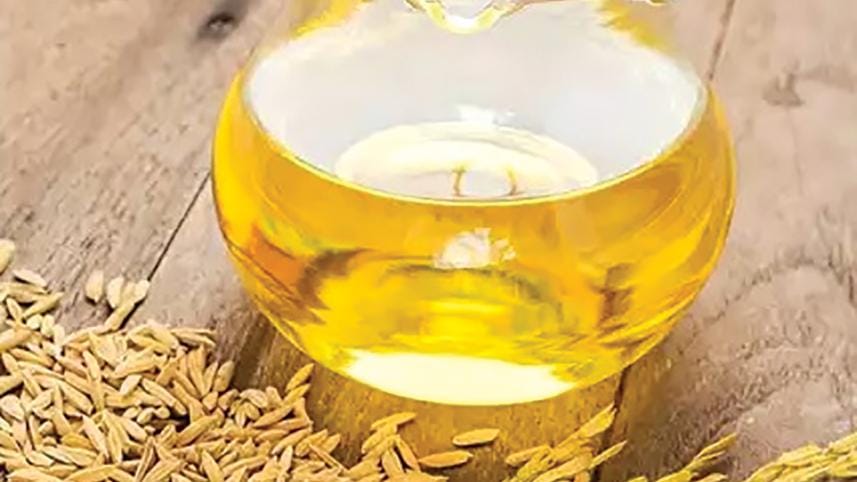Rice bran oil export may face 25% regulatory duty

The National Board of Revenue (NBR) is set to impose a fresh 25 percent regulatory duty on the export of crude and refined rice bran oil to discourage shipments and increase domestic supply.
The tax administration is likely to issue a notification this week, an official of the NBR said, asking not to be named.
"We hope this move will somewhat contribute to stabilising the kitchen market."
The NBR plans to impose the duty following a recommendation made by the Bangladesh Trade and Tariff Commission (BTTC) in December last year.
The commission's recommendation comes in response to soaring cooking oil prices in the local market over the past few months, driven by rising international prices due to a reduction in palm oil production and Indonesia's increased focus on using palm oil for biodiesel.
Bangladesh requires around 23 lakh tonnes of edible oil annually, and more than one-fourth of this demand is met by rice bran oil.
At present, 20 local mills produce 2.86 lakh tonnes of rice bran oil a year in Bangladesh.
The country produces 5.5 crore tonnes of paddy annually, from which up to 7 lakh tonnes of rice bran oil can be extracted.
The government earlier imposed a 25 percent export duty on rice bran, which reduced its shipments.
However, the country has continued exporting around 70,000 tonnes of crude rice bran oil annually, as there is currently no duty discouraging its shipment, according to the BTTC.
A regulatory duty controls trade for stability, while an export duty taxes goods leaving a country.
The Trading Corporation of Bangladesh (TCB), the state-owned entity under the commerce ministry that sells essential commodities at subsidised rates, had earlier also requested the government to discourage exports of rice bran oil.
The plea came as exporters were reportedly reluctant to supply the oil to the corporation due to the product's high global prices.
In the domestic market, the supply of edible oil is decreasing, and prices are increasing due to the export of rice bran oil, according to the tariff commission.
In Dhaka, the average price of unpackaged super palm oil, the most consumed edible oil, rose by 16 percent year-on-year to Tk 159 per litre today, according to market price data compiled by the TCB.
Soybean oil prices have also increased, with supply still falling short of demand.
Kitchen markets are facing a shortage of branded bottled and non-branded loose soybean oil as well.
Meanwhile, Chitta Majumder, managing director of Majumder Group of Industries, which exports rice bran oil, welcomed the possible regulatory duty on rice bran oil.
He said prices of edible oil, including rice bran oil, rose in India after the neighbouring country imposed import duties on cooking oil.
The newly imposed duty on rice bran oil exports will make shipments less attractive, but consumers will be able to buy it at lower prices, he added.




 For all latest news, follow The Daily Star's Google News channel.
For all latest news, follow The Daily Star's Google News channel.
Comments